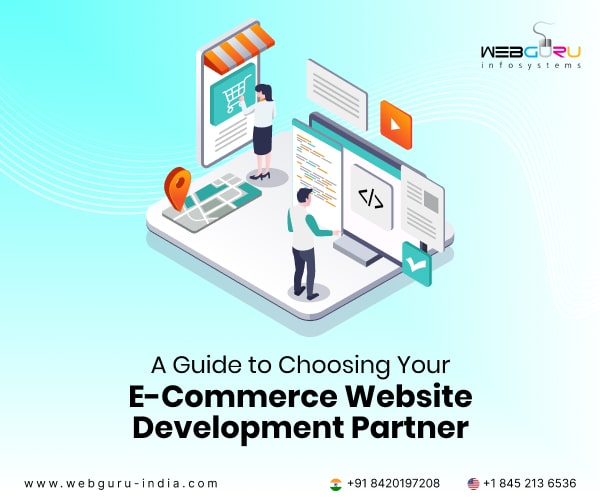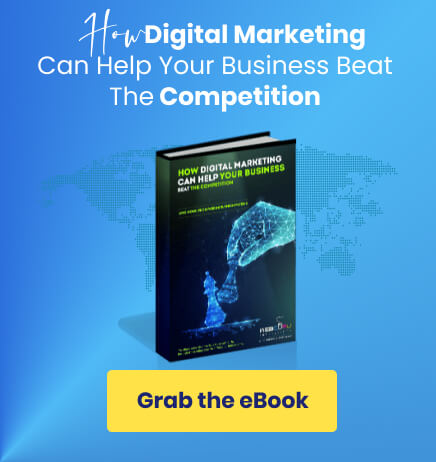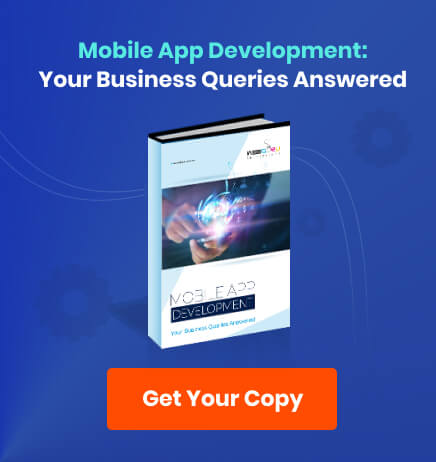Home Blog Ecommerce Website Development What to Look for While Hiring an E-Commerce Website Development Company
What to Look for While Hiring an E-Commerce Website Development Company
- 14 Oct / 2025
- 628 views
- 9 Min Read

Choosing the right e-commerce website development company is critical for an online business to be successful. With millions of e-commerce websites worldwide, choosing a partner for development often makes or breaks the business. This guide offers the critical evaluation criteria of a complete package, such as technical expertise across different platforms, adherence to security standards, portfolio assessment, and post-launch support quality.
E-commerce is not just growing. It’s reshaping how businesses sell. Global online sales keep rising year after year. According to eMarketer, worldwide e-commerce sales are projected to continue growing from $6.41 trillion in 2025 to $7.89 trillion in 2028. This means your store must work flawlessly.
A poor choice of vendor costs time, money, and customers. It can stall launches, drain budgets, and leak revenue. This guide shows what to check when hiring an e-commerce website development company. The aim is simple: to help you make a clear, confident choice.
Factors to Consider while Choosing an E-commerce Website Development Company
Picking a partner is more than a simple price or portfolio. It’s about fit. You need technical ability, reliable processes, and shared expectations. Look for teams that blend design, development, and commerce strategy. They should offer the website development services you need now and in the future. Here are some key factors that will help you make the right choice –
1. Technical Expertise and Platform Proficiency
Technical skills decide how well your store performs. Poor implementation costs more later. Ask about platforms, custom development, mobile approach, and performance tuning. Confirm they can deliver the features you need.
Multi-Platform Experience
Different platforms suit different goals. Some businesses need a quick Shopify setup. Others need Magento for complex catalogues. Choose companies that show work across multiple platforms. They’ll know trade-offs and can recommend the best option for your model.
Custom Development Capabilities
With the number of e-commerce websites on the rise, custom features have become necessary for the business to stand out. Ensure the team can build custom checkout flows, bespoke integrations, and unique product pages.
Scalability focus
Check whether their code and architecture support growth. If traffic or SKUs rise, your store must scale without a complete rebuild.
Mobile-First Approach
Most shoppers browse and buy on phones. Slow mobile pages kill sales. Look for responsive design expertise and mobile app options when appropriate. Ask for real examples and metrics showing mobile improvements.
2. Portfolio and Industry Experience
A portfolio shows what the team can actually deliver. Don’t just scan screenshots. Study outcomes. Look for projects that solved problems like high cart abandonment, inventory sync, or complex shipping.
Diverse Industry Portfolio
Diversity shows systems thinking. A vendor who’s worked in fashion, electronics, and groceries understands different checkout flows, return policies, and peak demands. Prefer vendors that have solved similar problems to yours. This reduces the learning curve.
Project Complexity Assessment
Check the range of projects handled. A good team can do both a basic store and a multi-vendor marketplace. Confirm experience with payment gateways, tax rules, inventory management, and shipping partners. If you plan to sell internationally, verify multi-currency, language, and local compliance experience.
3. Development Process and Project Management
How they deliver matters as much as what they deliver. You want clear stages, timely updates, and agreed milestones.
Structured Methodology
Processes reduce surprises. Ask whether they use Agile sprints or a waterfall plan. Both can work, but what matters is clear milestones and regular demos. Be clear about your communication protocols. Expect weekly updates, sprint reviews, and a roadmap that ties features to dates. Watch for realistic estimates. Avoid vendors that promise an unrealistic delivery window to win the bid.
Quality Assurance
Testing saves time and reputation. Note whether they run cross-browser tests, security scans, and load tests. See how they log, prioritise, and resolve defects. Check if fixes are included in the price or billed extra.
Collaboration Tools
Transparency builds trust. Look for the use of tools like Jira, Trello, or Asana for visible progress. Some clients prefer weekly demos. Others want monthly checkpoints. Be clear on how frequently you want updates and make sure they can deliver them. Demand proper handover documents and admin guides before sign-off.
4. Security and Compliance Standards
Security is non-negotiable for stores that handle payments and personal data. A breach destroys trust and invites fines. Your vendor should treat security as an integral part of delivery. Prevention is far cheaper than cleanup.
E-commerce Security Essentials
Every store must use SSL and encrypt sensitive data. An e-commerce website development company must have an SSL certificate. If you accept card payments, ask how they handle compliance and tokenisation.
GDPR and Privacy Compliance
Data Privacy policies differ from region to region. The developer must be aware of the GDPR and local laws relevant to your customers. Request for built-in consent tools and clear privacy pages regarding how and where data is stored, for what duration, and to whom it can be accessed.
Backup and Recovery
Backups are insurance. Confirm automated, versioned backups and test restores. Look for a plan that describes RTO and RPO targets. Check hosting SLAs and expected uptime percentages.
5. Post-Launch Support and Maintenance
The launch is the start, not the end. Strong post-launch support keeps the store stable and competitive. Sales, plugins, and threats are always evolving. The site needs ongoing care.
Ongoing Technical Support
Know their service levels. Clarify response times and business hours vs. 24/7 plans. Ask about their support channels, too. They should preferably have multiple channels: email, ticketing, and phone. Get clarity on what counts as a bug vs. a new feature.
Maintenance Services
Routine maintenance preserves site performance and protects long-term value. Ensure they include platform updates, security patches, and plugin maintenance. Ask about uptime monitoring and regular speed checks. Confirm scheduled backups and tested restore procedures.
Growth and Scaling Support
Your store will change. Make sure they can add new modules, promos, or integrations. Check their ability to handle sales peaks and holiday spikes. Confirm they can plug in new payment gateways or shipping providers.
6. Technology Stack and Future-Proofing
The tech choices you make now shape future options. Go for modern, modular solutions with clear upgrade paths
Modern Technology Adoption
Current tech matters. Ask the website development company which frameworks and libraries they use, and why. API-first firms tend to make integrations and headless settings easier. Cloud hosting, on the other hand, provides for elastic scaling and resilience. Ensure that whatever their use is in sync with your website’s needs.
Future-Proofing Strategies
Clarify how the platform will accept updates or new modules. Check their ability to migrate platforms if business needs change. Discuss emerging technology integration. Ask if they can add AI tools, AR product previews, or voice commerce in the future.
Ready to Build Your E-commerce Success Story?
The selection of an ideal e-commerce website development company is more than just a technical decision. It is a strategic investment meant to enhance the future of your brand. Be sure to choose a partner with proven platform breadth, custom development skills, strict security, and clear support terms. Make sure their process fits your project rhythm. Use this guide as a checklist.
If you’d like a partner that offers broad e-commerce platform experience and end-to-end website development services, consider vendors with proven track records and transparent processes.
WebGuru India, for example, lists eCommerce, Shopify, Magento, and WooCommerce work and a full set of web services.
Choose wisely and let your store grow with you. For a partner that combines design, development, and ongoing support, contact us today at enquiry@webguru-india.com. Let’s build something extraordinary together.

Srishti Bhattacharyya
A writer driven by a love for words, who is constantly exploring new ways to push the boundaries of expression. Always testing the limits of creativity, she finds inspiration in books, painting, and the endless ideas waiting on Pinterest.

-
1000+
Happy
Clients -
25+
Countries
Served -
20+
Years of
Trust







